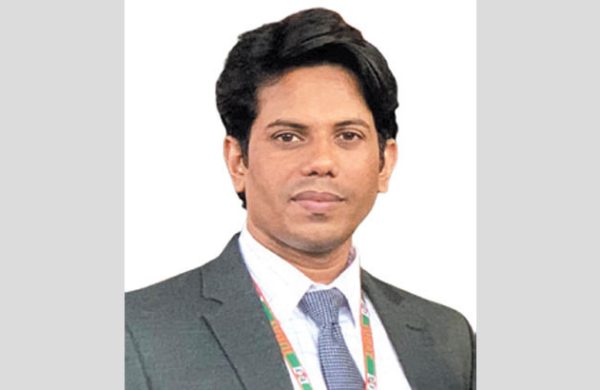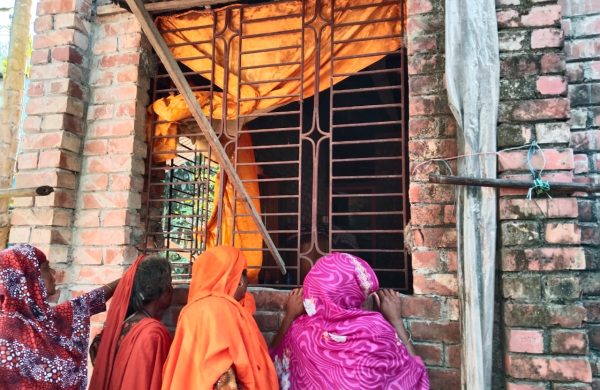The tragedy that is Bangladesh’s health sector
- Update Time : Friday, June 27, 2025

—M Jahangir Alam—
Issues like underinvestment, high out-of-pocket costs, and inequitable access have long plagued Bangladesh’s health care system. A lack of political will still impacts the quality of health services and puts an economic strain on its citizens.
Bangladesh’s health budget has increased nominally in recent years, but the share of the total budget has hardly changed.
The allocation remained relatively stable, with a slight uptick from 5.2% to 5.3%. Despite the nominal increase, the health budget’s share of GDP decreased from 0.74% to 0.66%, indicating that the health sector’s growth did not keep pace with the overall economic expansion.
Bangladesh’s health expenditure is a mere 1% of GDP, among the lowest in South-Asia. Other countries with similar development contexts, such as India and Nepal, spend relatively large amounts of their GDPs on health.
One of the most significant problems of Bangladesh’s healthcare financing system is excessive out-of-pocket (OOP) expenses. According to a study also conducted by the Health Economics Unit (HEU), the majority of this expenditure is on medicines (54.4%), followed by diagnostics (27.52%), doctor consultations (10.31%), and transport costs (7.77%).
High out-of-pocket costs (OOP), however, disproportionately affect households with low income, often driving families into poverty due to catastrophic health care spending. Indeed, in 2022, health-related costs drove around 6.13 million people (3.7% of the population) below the national poverty line.
These improvements were partly due to good public health measures such as the Expanded Program on Immunization (EPI), building village clinics, and training health personnel.
A FRAGILE HEALTH SECTOR
However, financial limitations jeopardize further progress. The high OOP costs negatively influence patients’ behaviour in seeking timely care, which leads to treatment delays and exacerbates the health condition. Thus, even the progress made in the last 10 years could be undone unless financing challenges are adequately addressed.
Healthcare is an essential investment because it saves lives and is an economic driver. Conversely, insufficient investment in the health sector results in productivity losses, increased inequality, and less human capital development.
The healthcare sector, particularly the drug industry, has become an essential economic driver in Bangladesh. Today, the country satisfies more than 98% of its domestic medicine demand and exports pharmaceuticals to 157-plus countries.
The sector plays a key role in GDP growth and job creation. Yet, these industries’ benefits cannot be realized without parallel investment in healthcare delivery systems.
Public health emergencies, such as pandemics, can quickly cripple economies that lack sound public health systems, as was seen in the Covid-19 crisis.
Specific structural and operational hurdles still plague Bangladesh’s health system. A significant part of the health budget goes unspent each year due to weak implementation capacity, bureaucratic delays, and inefficiencies in administration.
Rural areas often have underdeveloped infrastructure, and many community clinics lack the proper equipment and essential medicines. There are only about six doctors per 10,000 people, far lower than the World Health Organization recommendation of 23, and the doctor-to-population ratio remains low.
SOLUTIONS
First, the government must gradually raise its health budget to a minimum of 5% of GDP (as the WHO recommends) to guarantee the funding required to address essential services. By expanding community-based health financing models, households’ out-of-pocket medical costs would be significantly reduced.
At the same time, it is imperative to enhance healthcare infrastructure and human resources (even more so in rural population centers) by investing in medical manpower, diagnostics, and telemedicine.
An equally important aspect of effective implementation is that our health ministries have the necessary transparency, accountability, and planning mechanisms in place to use the funds allocated efficiently.
Bangladesh has seen remarkable progress in healthcare without investing a lot of money, but the healthcare system is under increasing pressure from high out-of-pocket spending and underfunding.
The health budget, though increasing, is paltry compared to the GDP and the population’s needs. A well-funded and well-managed health sector is not just a moral obligation but a sound investment in Bangladesh’s future.
—————————————————————————-
M Jahangir Alam is a research and development worker.



















